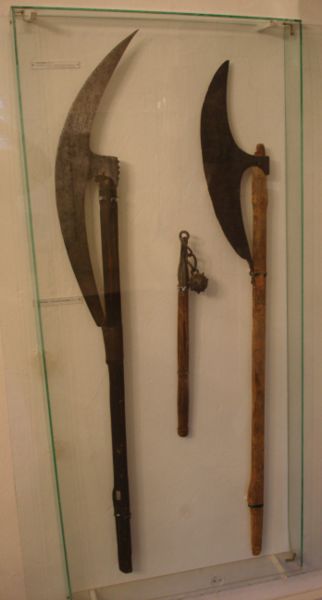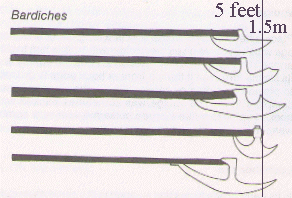Bardiche

Bardiche

| Weapon Type | Approximate
Weight in Pounds |
Size S or M | Size L | Notes | Length | Space Required | Speed Factor | 0 | 1 | 2 | 3 | 4 | 5 | 6 | 7 | 8 | 9 | 10 |
| Bardiche | 12.5 | 2-8 | 3-12 | The great axe is a bardiche
or halberd
(which are both poleaxes). (79.16) |
c. 5' | 5' | 9 | -3 | -2 | -2 | -1 | 0 | 0 | +1 | +1 | +2 | +2 | +3 |
Bardiche
This very broad and heavy
axe links the pole’axes to the pole cleavers
as a sort of transitional
step between the two forms, although its only
obvious use is as a military
arm. A bardiche head ranged from about 2
feet to over 3 feet in length,
and it was attached to its haft with two
rings or a single one in
those examples where the blade is shorter and
backed with a hammer head
or spike. The bardiche in all of its forms
was very heavy and cumbersome
- more so by far than a halberd -
and was used principally
in Eastern Europe.
As stated, the family of
axes set on poles for use in war overlaps into
many other weapon forms,
but its only true members are the pole
axe; the halberd (possibly
the brown bill); and the bardiche. The related
cleaver-type weapons are
so similar in function, however, that
they can almost be treated
as pole axes.

|
|
|
|
|
|
*template***template*